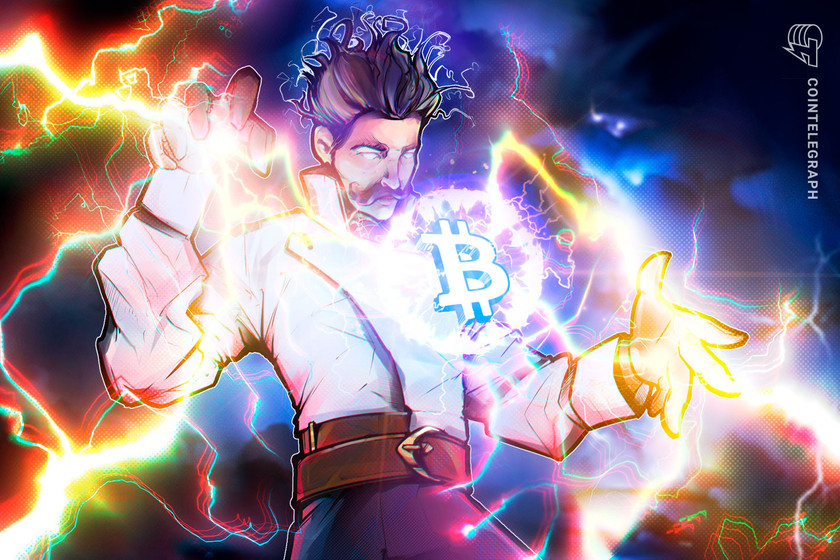Bitcoin and Lightning Network can save DeFi from adversity: MicroStrategy CEO

Bitcoin provides a “sound ethical, economic, and technical foundation for DeFi,” said Michael Saylor.
In light of the recent fragility in the decentralized finance (DeFi) sector, Bitcoin (BTC) maximalist and MicroStrategy CEO Michael Saylor feels that Bitcoin and the Lightning network can come to the rescue of the DeFi market.
With two enormous protocols, Terra and Celcius, facing acute difficulties within a month of each other, the DeFi sector is going through a tough time. And in a recent tweet, Saylor suggested that Bitcoin and Lightning could help stabilize the industry.
According to Saylor, Bitcoin provides a “sound ethical, economic, and technical foundation for DeFi.” He went on to say that the Lightning protocol and BTC token will be used to construct the next generation of DeFi.
The sound ethical, economic & technical foundation for DeFi is #Bitcoin. The next generation of DeFi will be built using the #Lightning⚡️ protocol and the #BTC token.https://t.co/5LlNlXkLMt
— Michael Saylor⚡️ (@saylor) June 14, 2022
Saylor was responding to a Bloomberg story on Tuesday, highlighting numerous key concerns in the DeFi field. Mahin Gupta, founder of digital-asset custody platform Liminal, told Bloomberg that:
“What is happening with Celsius will have serious repercussions for the industry. It’s a not-insignificant player, and its apparent failure will have ripple effects.”
Celsius Networks has closed down withdrawals and other transactions on its platform barely a month after the spectacular collapse of the Terra blockchain, which enticed investors with yearly returns of around 20%. The collapse of Terra, which was triggered when its stablecoin lost its 1-to-1 peg to the U.S. dollar, and Celsius’ halt in withdrawals have added to cryptocurrencies’ losses.
As a result, the MicroStrategy CEO has been very enthusiastic about Lightning Network, Bitcoin’s Layer 2 scaling solution. According to Saylor, Bitcoin is the future of money and the Lightning protocol will aid in transaction scalability. He added that:
“If you’re going to do payments and transactions high speed, you’re going to need a base layer that’s ethically sound, economically sound, and technically sound,” he said. “That’s what Bitcoin is. But then billions and billions of transactions are going to go on a layer 2 like Lightning.”
To date, DeFi apps on the Bitcoin network haven’t attained the same level of popularity as they have on other blockchains like Ethereum (ETH) and Solana (SOL). Still, some people who have studied DeFi believe that it can be implemented in a sustainable manner on the Lightning Network, saying “stablecoins and fully collateralized loans against your BTC do have merit.”
Related:Bitcoin Lightning Network capacity charges through 4,000 BTC
According to the nonfungible token (NFT) project ‘the littles’ creator Wil Lee, BTC and LN may give a boost of energy to DeFi and NFTs. He told Cointelegraph that while various new protocols are still in the experimental phase, protocols like BTC and LN already demonstrate their inherent strength, adding that:
“For anyone who wants to enter the crypto, stability is something they want to be sure about. When I know that an established protocol is in the picture, I’ve peace of mind, which lends strength to the overall crypto ecosystem as well. Backed by none other than BTC, your DeFi or NFT project is sure to have many more takers.”
As per Ignite’s Aliasgar Merchant, DeFi is “struggling” and everyone is doing everything they can to make it through the crypto winter. He emphasized the recent events on Terra and Celius as proof that DeFi, which is intended to be the core of Web3, is failing. The two most important aspects of developing a solid DeFi system, according to Merchant, are interoperability and scalability. He added that “once the base is firm we can start focusing more on niche protocols to cater to our DeFi needs.”



